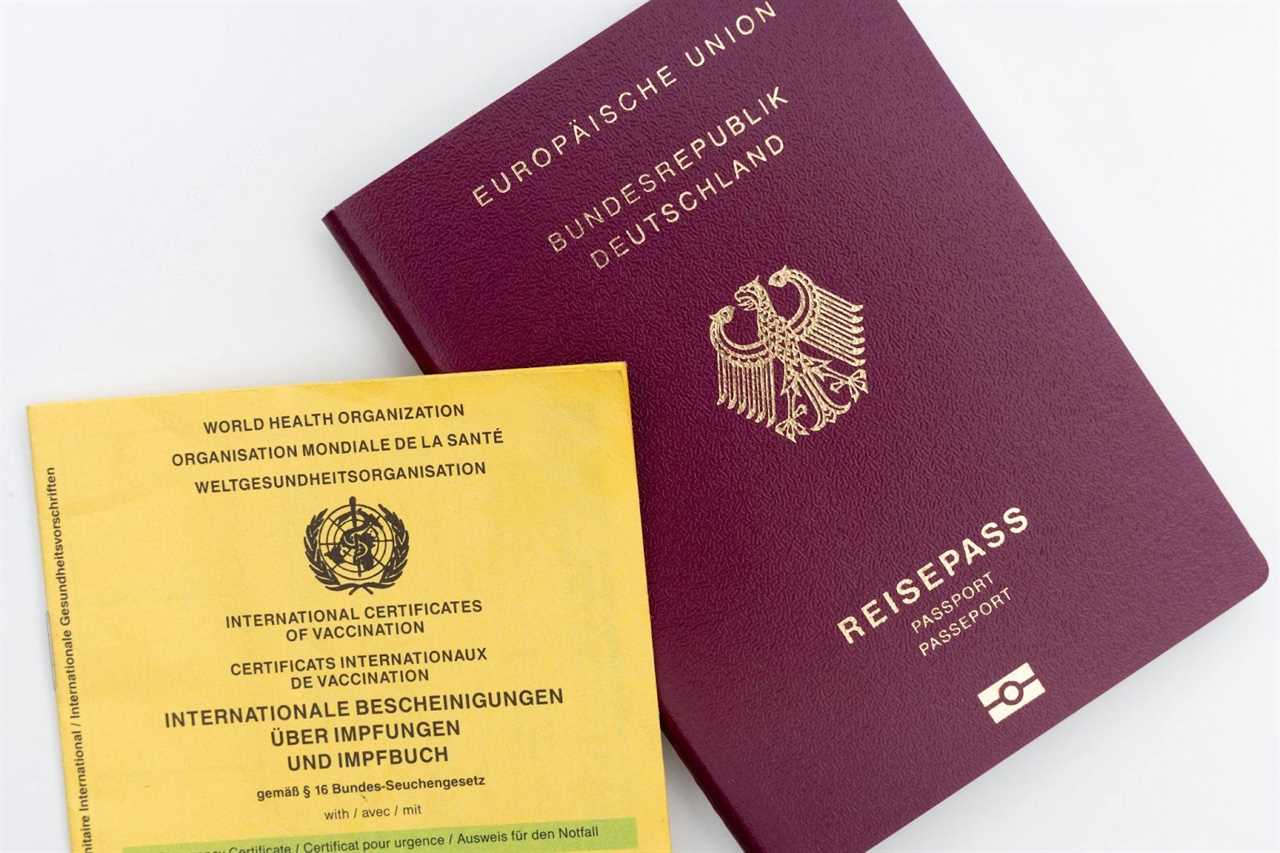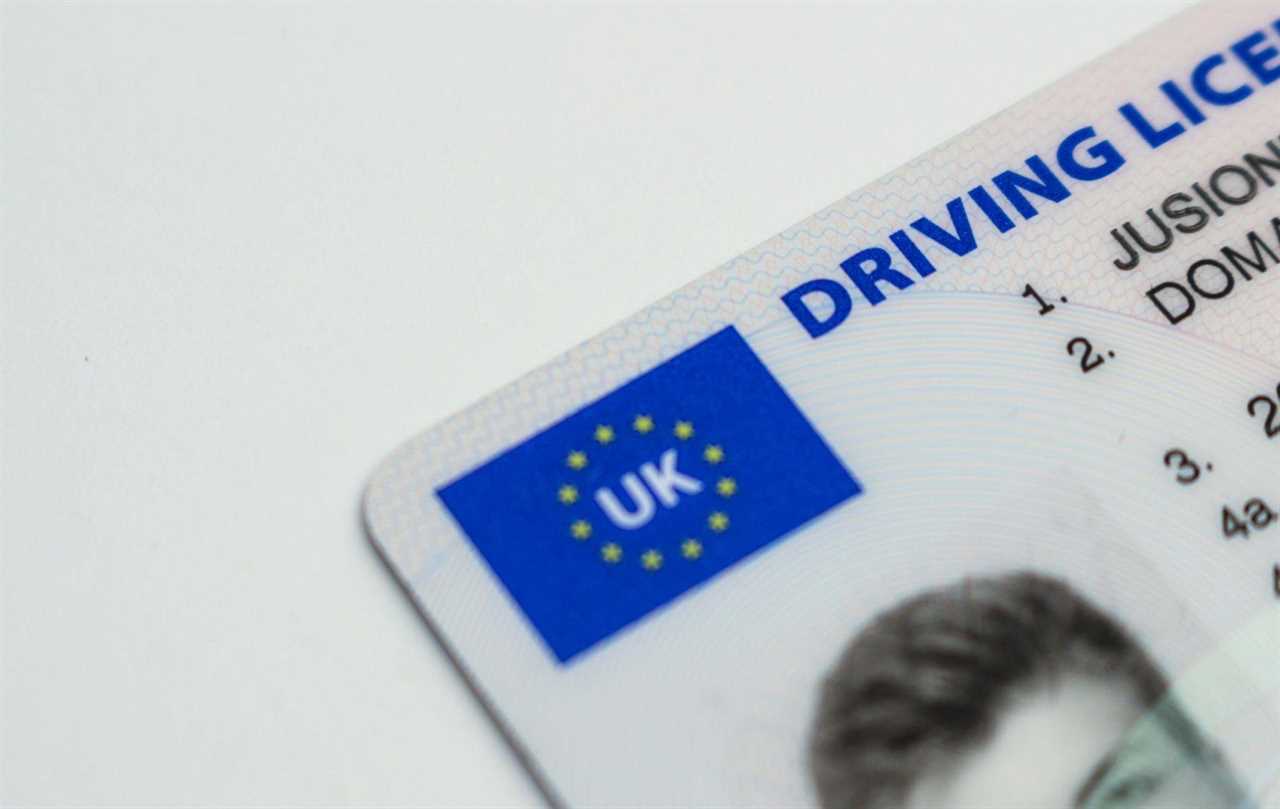
An average human being who works 8 hours a day spends at least 2,080 hours in a year. That’s a lot to take, we know. Therefore, one reason to travel the world is to relax from hectic routines.
When you are busy managing the workload, spending 9-5 at the office, or looking after the home, you often forget about your happiness and well-being. What makes a person happy is going to a foreign country for vacations.
Besides, you don’t just travel for the sake of fun; in fact, there are more reasons for people to travel to a foreign country. It can be for studies, or it can be for business.
When traveling to a foreign country, all we care about is roaming around the streets, knowing more about the natives, exploring the food, or getting the work done. In this excitement, we often forget about the necessary requirements for traveling to another country, and we end up getting rejected from the airport or another country’s border.
If you are traveling for the very first time, you should know that there are certain documents required to enter or exit a foreign country. You can’t just pick up your bag pack and book a ticket to Cappadocia (quite famous among travelers these days)!
As a first-time traveler, you might need to know a few things and keep a few documents. We pinpoint every nitty-gritty detail that comes in handy. So, read on and make your foreign trip hassle-free!
📖 Recommended Reading: If you’re looking for more useful information, check out Tips for Applying for a Golden Visa.
The 8 Essential Documents to Keep for Foreign Travel

Before COVID-19, the international travel industry was blooming, with a total market cap of $1.86 trillion. However, in 2020, when the entire world came to a halt, the industry witnessed a drastic decline of 67% compared to 2019. That was a huge loss to bear for the industry and a huge loss for frequent travelers who badly missed traveling.
However, in 2022, the international borders regained their hold and started the travel and tour in full swing. It has been years now, and we have found the right approach to live with COVID-19.
Whether it is COVID or no COVID, there are certain documents that you might need for your trip. Let’s ponder over the following list of documents that a person might need.
- Passport
- Travel Insurance
- Visa
- Driving License
- Identification Documents
- Tickets
- Health Travel Documents
- Academic Documents
1. Get Your Passport Ready
You might have heard this phrase a lot but trust us, we can’t emphasize enough on keeping your passport ready. A passport is an absolute must-have for any international travel, and you can’t skip it. If you don’t have a passport, go get it and if you have a passport, make sure it is up to date.
In some cases, some countries don’t accept your passports in English, so in these circumstances you get a document translation for your passport or any other document in another language.
To make sure your passport is up to date, have a look at the following checklist.
| Mark Done | Passport Requirements |
|---|---|
| Validity of Passport | |
| Blank Pages in the Passport | |
| Machine-readable zone (MRZ) | |
| Your Updated Photo | |
| Your Signature |
- Your passport should be valid for at least six months beyond your intended travel dates. Many countries impose this rule because they want to prevent situations where your passport expires while you’re abroad.
- It should have a sufficient number of blank pages for entry and exit stamps. How many pages do you require? It depends on the destination country, so check their website for specific requirements.
- This is a block of text written like code on the bottom of the passport’s data page containing information like your name, nationality, date of birth, and passport number. Check if it is not worn out.
- The passport photo should be recent, clear, and meet the specific size and format requirements as outlined by your passport issuing authority.
- Your signature on the passport should match the one you use regularly.
Although you can take care of your passport, it is better to get a photocopy of your passport’s photo and information page to keep it separate from the original.
2. Get A Visa to Enter
When you travel abroad, the second thing you might need after your passport is your Visa. A Visa is your legal pass to enter the borders of a country. However, you do not need a visa to enter another country because your need for a visa depends on your destination and your nationality.
If you are a US passport holder, you can enter 156 countries without having a visa. Besides, there are countries that don’t require a Visa to enter their territory.
Just like this, the process of getting a visa also depends on the destination country and your own country. That’s why you should do your research months before planning the trip so that you can have enough time to apply for the visa.
You need to check certain things before applying for a visa.
| Mark Done | Visa Doc Requirements |
|---|---|
| Validity of your Visa | |
| Entry type | |
| Duration of stay | |
| Purpose of stay |
- The Visa’s validity period shows the duration you can legally travel to the country. You have to check if it goes with your travel plans.
- Check the entry type of your Visa. Is it a single-entry (allowing one entry) or multiple entry (allowing multiple entries within the validity period)?
- Now you check how many days or what duration you can spend in the destination country per entry.
- A Visa comes in different types depending on their purpose. The Visa often specifies the authorized purpose of your visit (e.g., tourism, business, study).
3. Keep Your Travel Insurance Card/Certificate
Your travel insurance certificate certifies that you get insurance coverage for your acute illnesses, injuries, medical visits, trip cancellations, lost or stolen luggage, hotel issues, etc. It depends on your coverage terms and policies. Normally, travel insurance is not a necessary document to have, but it is better to have it on you. On the other hand, there are countries that don’t let you in if you don’t have travel insurance.
You will have peace of mind knowing that you are financially protected from unforeseen circumstances. If you don’t already have it, review different provider plans and choose the one that best suits your needs and budget.
Here are a few things to check in your travel insurance:
| Mark Done | Travel Insurance Requirements |
|---|---|
| Coverage Details | |
| Limits And Deductibles | |
| Destination-Specific Coverage | |
| Pre-Existing Medical Conditions | |
| Emergency Assistance |
- Carefully review the specific coverage provided by the plan, including what’s included and excluded.
- Read your insurance policy thoroughly to know the maximum amount the insurance will cover for each type of claim and any applicable deductibles. Deductibles are the initial amount you pay before the insurance kicks in.
- You have to check if the plan covers your specific travel destination and any activities you plan to undertake.
- If you have any pre-existing health conditions, check if the plan offers the required coverage if you witness health complications.
- Check if the plan provides 24/7 emergency assistance services to get help and guidance in case of unexpected situations during your trip.
4. Keep Your Driving License

You might be wondering why you would need your regular driver’s license abroad. But the thing is, if you plan to rent a car abroad, you’ll need an International Driving Permit (IDP) along with your regular driver’s license. An IDP is your driving license translation that comes in multiple languages, making it easier for foreign authorities to understand.
How do you get an IDP? You can get an IDP from your local automobile association or a designated government agency. You have to apply for an IDP in order to obtain it. The application process is quite easy as it usually requires just your driver’s license, passport photo, and a small fee.
If you intend to take your IDP along, please check the following details.
| Mark Done | Driving License Requirements |
|---|---|
| Validity Period | |
| Information Accuracy | |
| Compatibility | |
| Physical Condition |
- You have to check the validity period of your IDP so that it covers the timeframe you are abroad.
- It is very important for you to check if your driving license translation is accurately done. Check your name, driver’s license number, expiry date, and any additional categories or endorsements mentioned.
- There are some countries that don’t accept an IDP so before heading out, check if the destination is compatible with your IDP.
- You have to check your IDP is in good physical condition, free from tears, water damage, or any markings that could render it illegible.
Essential Travel Resources
❗Don’t forget travel insurance
This company is the one I trust, it’s one of the most essential things for any trip. It has your back in case you get sick abroad, or have an accident.
🎒Pack smarter, not bulky
Check out this vacation packing list, including all the essentials you need to pack when traveling, from travel clothing to backpacks and more.
🏡Where to Stay – Here are Suggestions
This is my favorite place to look for accommodations, it offers different types, a ton of locations, and good price options.
🗺️Get Around Hassle-Free
This one is the perfect option to look for different transportation options between cities, from flights, buses, and taxis to minivans and more.
🛫Find Cheap Flights
Whenever I need to fly, I head to this website for low-cost flights.
5. Other Identification Documents
What if you lost your passport in a foreign country? What would happen if your passport were stolen? To avoid such scenarios, make sure that you have a backup document for identification purposes. In foreign countries, at every interval, you will find a cop who will ask you to show your ID just as a general security protocol.
So, besides your passport, consider carrying additional identification documents like your national ID card or a student ID for additional proof of identity. For additional security, keep a photocopy of both sides of your ID separate from your originals, and store digital copies securely.
Here are a few things that you might need to check in your ID documents:
| Mark Done | ID Requirements |
|---|---|
| Validity Period | |
| Information Accuracy | |
| Acceptance | |
| Physical Condition |
- You must check if the ID document or any other document you are using is valid for that timeframe and not expired. Always pay attention to the expiry dates!
- If you are getting a document translated, make sure every piece of information is accurate, including your other ID documents, such as your passport. For example, the photo in your driving license document should match your passport.
- You must check if the document you are taking with you is in good physical condition, free from tears, water damage, or any markings.
- Check if your travel destination accepts that document for identification purposes. Some countries might have specific requirements for secondary forms of ID.
6. Keep Your Travel Tickets
Isn’t this obvious? But sometimes we forget to keep a ticket. This can be a hard copy or on your phone. A travel ticket serves as your confirmation that you have purchased a seat or a space on a specific mode of transportation. This applies to flights, trains, buses, ferries, and sometimes even tours or events.
This can be in the form of flight tickets, train reservations, or tour confirmations. Keep all travel tickets organized and readily accessible. The best way to keep them organized is by downloading digital copies of your tickets onto your smartphone or storing them in a secure travel app for easy access.
Now, check out the following things in your travel tickets:
| Mark Done | Travel Tickets Requirement |
|---|---|
| Personal Information | |
| Travel Details | |
| Seat Or Cabin Information | |
| Additional Details |
- Verify that your name and any additional passenger details (like age for children) are accurate and match your identification documents.
- Double-check the departure and arrival dates, times, and locations to ensure they align with your travel plans.
- Confirm that your assigned seat number or cabin class is correct, especially if you have specific preferences.
- Review any baggage allowance, special instructions, or contact information provided on the ticket.
7. Health Travel Documents
For this, you have to explore the travel websites of your destination country and see if they require any health-related documents. After COVID-19, almost every other country has accepted COVID-19 vaccine certificates from travelers. However, there are other health documents that help you with your acute illnesses and are mandatory to keep when you travel.
The document should have your health history and show the dates clearly or even mention your medications.
Here are some things you might want to check in your health document when you travel abroad.
| Mark Done | Health Travel Requirement |
|---|---|
| Vaccination Certificates | |
| Negative COVID-19 Test Results | |
| Doctor’s Note And Prescriptions | |
| Medical Insurance |
- Carry the original vaccine certificate proving you have received all required vaccinations, including administration dates.
- If required by your destination, ensure you have a valid negative COVID-19 test result taken within the specified timeframe before departure.
- If you have any pre-existing medical conditions and require medication, carry a doctor’s note explaining your condition and the original prescriptions for your medication.
- Travel insurance with medical coverage is highly recommended.
Conclusion
When you are about to travel, make sure you have all the documents to support your travel. To ensure that you meet the requirements of the destination country, consult with an expert or check out their resources for travel and tours. Besides, some countries don’t accept documents that are not in English, or some don’t accept documents in English and prefer their national language in legal documents.
Therefore, you should get document translation services from reputable platforms like TranslateSwift. They also help with NAATI-authorized driving license translation. So, if you are aiming for it, then look no further and place your travel document translation order now.
FAQs
What’s The Difference Between a Passport and A Visa?
While both are important for international travel, a passport is your official ID document for international travel, like a birth certificate. A visa, on the other hand, is a permit issued by a foreign country granting entry permission, like an entry ticket.
Do I Need an International Driving Permit If I’m Only Renting a Scooter On Vacation?
An IDP might be required alongside your driver’s license to rent a scooter, depending on the country’s regulations.
How Long Should My Passport Be Valid for When I Travel Internationally?
For passport validity, most countries require it to be valid for at least six months beyond your return date.
What Types of Health Documents Might I Need Besides Vaccinations?
Besides vaccinations, you might need negative COVID-19 tests, doctor’s notes for medication, or proof of health insurance, depending on your destination and health situation.
When Should I Start Gathering My Travel Documents?
To ensure a smooth experience, begin gathering your travel documents well before getting on your trip.
Disclosure: This blog post may contain affiliate links, which means that I may receive a commission for any purchases made through the links. Your trust is important to us, and we ensure that all products or services we recommend meet or exceed our editorial standards.
Last Updated on March 11, 2024
The post Traveling To a Foreign Country? Get Your Documents Right! appeared first on Travel Experta - Travel, Lifestyle, Freedom.
------------------------------------------
By: Waisale Naqiolevu
Title: Traveling To a Foreign Country? Get Your Documents Right!
Sourced From: travelexperta.com/traveling-to-a-foreign-country-get-your-documents-right/
Published Date: Mon, 11 Mar 2024 19:49:08 +0000






